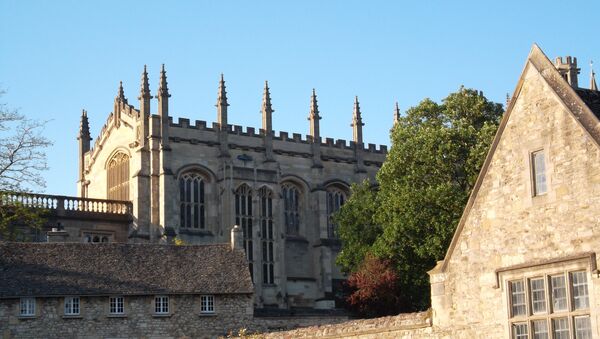MOSCOW, November 21 (Sputnik) – Graduates of private schools are 2.5 times more likely to attended an elite university than graduates of state or grammar schools holding the same exam results, according to a report published Friday based on the 1970 British Cohort Study.
“They found that those who attended private secondary schools in the 1980s were about 2.5 times more likely to gain a degree from a highly selective Russell Group university [an association of the 24 most prestigious public research universities in the United Kingdom] than comprehensive of grammar school pupils with the same A-level [a school-leaving qualification in the United Kingdom] results,” says the report published by the Institute of Education, which collaborated with the University of Manchester on the research.
Other factors increasing the likelihood of getting a degree from an elite university were having a graduate parent, higher social status and higher levels of aspiration in private schools. Professor Anne Sullivan, the study’s lead author, said, “Given the domination of Britain’s ruling class by graduates of private schools and elite universities, these non-meritocratic processes have important repercussions.” Only 40 percent of current British parliamentarians attended a comprehensive school.
“Contrary to the popular opinion, a grammar school education also does not appear to have increased working-class pupils’ chances of getting a degree,” the report states.
Sullivan commented on this finding, saying, “There appears to have been a ‘leaky pipe’ between grammar school attainment and university entrance,” adding that grammar school education made a difference at O-levels [a secondary school-leaving qualification in the United Kingdom from 1950-1988].
The 1970 British Cohort Study involved 7,700 people in Great Britain born in a particular week in April 1970. Since the survey conducted at birth, there have been 8 “sweeps” of all cohort members at ages 5, 10, 16, 26, 34, 38 and 42. The study has collected information on health, economic circumstances, physical, educational and social development over the course of the lives of the participants in the study.





